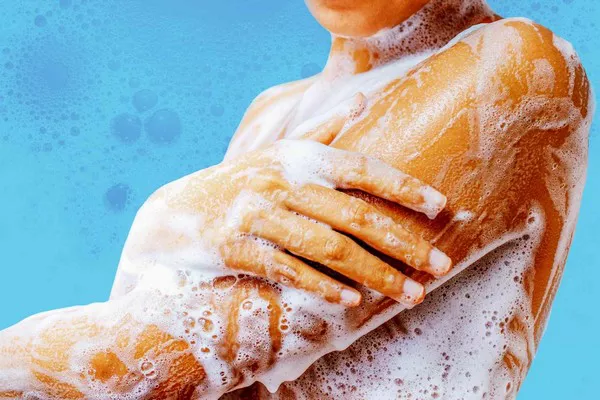Severe eczema, also known as atopic dermatitis, is a chronic skin condition characterized by inflamed, itchy, and red skin. Managing severe eczema requires a multifaceted approach, including medical treatments, lifestyle adjustments, and alternative therapies. This comprehensive guide explores the various strategies for alleviating severe eczema symptoms and improving overall skin health.
Definition and Characteristics
Severe eczema is an advanced form of atopic dermatitis, which is a type of inflammatory skin condition. Unlike mild eczema, severe eczema presents with intense symptoms, including widespread inflammation, intense itching, and significant skin damage. The affected skin may appear red, dry, and thickened, and in some cases, it can crack and bleed.
Common Symptoms and Triggers
Symptoms of severe eczema include persistent itching, redness, swelling, and the formation of thick, scaly patches. These symptoms can significantly impact daily life, causing discomfort and emotional distress. Common triggers for severe eczema include allergens (such as pollen and pet dander), irritants (like harsh soaps and detergents), extreme temperatures, and stress.
Differentiation Between Severe Eczema and Other Types of Eczema
Severe eczema differs from other types of eczema, such as contact dermatitis or nummular eczema, primarily in its intensity and extent. While all forms of eczema involve inflammation and irritation of the skin, severe eczema typically affects larger areas and presents with more debilitating symptoms. Identifying the specific type of eczema is crucial for tailoring the treatment approach.
Medical Treatments
Topical Medications
Topical medications are commonly prescribed for managing severe eczema. Corticosteroids are potent anti-inflammatory drugs that help reduce redness, swelling, and itching. They are available in various strengths, from mild to ultra-potent, and should be used as directed by a healthcare provider to avoid potential side effects.
Calcineurin Inhibitors (e.g., tacrolimus and pimecrolimus) are non-steroidal anti-inflammatory medications that can be used for sensitive areas like the face and eyelids. They work by inhibiting the immune response that triggers eczema flare-ups.
Other topical treatments may include coal tar preparations and newer, non-steroidal anti-inflammatory options, which can be discussed with a dermatologist based on individual needs.
Systemic Medications
For severe cases that do not respond to topical treatments, systemic medications may be necessary. Oral immunosuppressants such as cyclosporine and methotrexate help suppress the immune system’s overactive response, reducing inflammation and itching.
Biologics, such as dupilumab, are a newer class of systemic treatments designed specifically for severe eczema. They target specific immune system pathways involved in eczema, providing significant relief for many patients.
Phototherapy
Phototherapy, or light therapy, involves exposing the skin to controlled amounts of ultraviolet (UV) light. This treatment helps reduce inflammation and itching and is usually considered when topical and systemic treatments are insufficient. Phototherapy should be administered by a trained professional to ensure safety and effectiveness.
Lifestyle and Home Remedies
Skin Care Routine
A consistent skin care routine is essential for managing severe eczema. Regular moisturizing helps keep the skin hydrated and forms a protective barrier against irritants. Look for fragrance-free, hypoallergenic moisturizers to minimize potential irritation.
Avoiding Triggers
Identifying and avoiding personal triggers is crucial for managing eczema. Common triggers include certain fabrics, harsh detergents, and specific foods. Keeping a journal of flare-ups can help pinpoint triggers and develop strategies to avoid them.
Bathing Tips
Bathing practices can significantly affect eczema symptoms. Use lukewarm water and mild, non-soap cleansers to prevent skin irritation. After bathing, gently pat the skin dry and apply a moisturizer while the skin is still damp to lock in moisture.
Diet and Nutrition
Potential Impact of Diet on Eczema Symptoms
Diet can play a role in eczema management, although the exact relationship between diet and eczema is still being studied. Some individuals find that certain foods exacerbate their symptoms, while others experience improvement with dietary changes.
Foods That May Exacerbate or Help Alleviate Eczema Symptoms
Common food triggers include dairy, nuts, and gluten. Conversely, foods rich in omega-3 fatty acids (such as fish) and antioxidants (such as fruits and vegetables) may help reduce inflammation and support skin health.
Role of an Elimination Diet or Consultation with a Dietitian
An elimination diet involves removing potential trigger foods from the diet and gradually reintroducing them to identify specific food sensitivities. Consulting with a dietitian can provide personalized guidance and ensure nutritional balance while managing eczema.
Effectiveness and Safety Considerations
While some individuals report benefits from alternative therapies, their effectiveness and safety are not always well-established. It is important to discuss any alternative treatments with a healthcare provider to avoid potential interactions with prescribed medications.
SEE ALSO: What Causes Eczema on the Back of the Neck?
Conclusion
Managing severe eczema requires a multifaceted approach that combines medical treatment with daily care and lifestyle modifications. While the condition can be challenging, a proactive and informed strategy can significantly alleviate symptoms and enhance quality of life. By working closely with healthcare professionals, adopting appropriate skin care routines, and making necessary lifestyle adjustments, individuals with severe eczema can gain better control over their condition. Ultimately, with the right tools and support, it is possible to manage severe eczema effectively and lead a more comfortable, fulfilling life.
Related Topics:

























